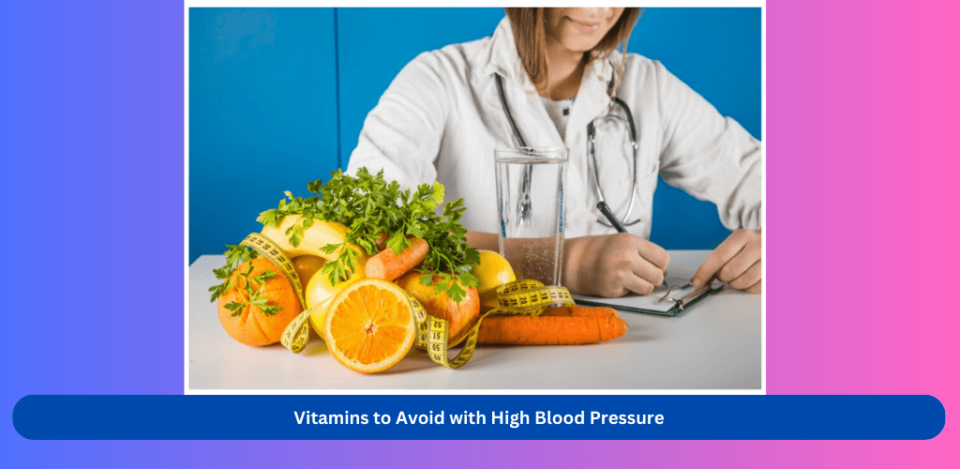High blood pressure, or hypertension, is a common health concern that affects millions of people worldwide. While many individuals turn to vitamins and supplements to boost their health, not all vitamins are safe for those with high blood pressure.
The Importance of Managing High Blood Pressure
Understanding Hypertension
Hypertension is often referred to as the “silent killer” because it typically has no symptoms until significant damage has occurred. It increases the risk of heart disease, stroke, and other serious health issues. Proper management is crucial to reduce these risks and improve overall health.
Role of Supplements in Health Management
Supplements can play a supportive role in managing health conditions, including high blood pressure. However, it’s essential to choose them wisely, as some vitamins and minerals can interfere with vitamins to avoid with high blood pressure control.
Vitamins to Avoid for Better Blood Pressure Control
Vitamin E
Why Vitamin E Can Be Harmful
While Vitamin E is known for its antioxidant properties, high doses can lead to increased bleeding risk, especially in individuals taking blood-thinning medications. This can complicate blood pressure management and increase the risk of cardiovascular events.
Recommended Dosage and Alternatives
If you need Vitamin E, opt for dietary sources like nuts and seeds, and consult your doctor for the appropriate dosage. Natural food sources provide a safer way to obtain this vitamin without the risks associated with high-dose supplements.
Vitamin D
Potential Impact on Blood Pressure
Vitamin D is essential for bone health and immune function, but excessive intake can lead to hypercalcemia, which may cause blood vessel constriction and elevate blood pressure. Balance is key in maintaining optimal health.
Managing Vitamin D Levels Safely
Get your Vitamin D levels checked regularly and aim to get this vitamin from moderate sun exposure and food sources like fatty fish and fortified products. Supplements should only be used if recommended by a healthcare provider.
Licorice Root
The Hidden Dangers
Often found in herbal supplements, licorice root can cause significant increases in blood pressure due to its active compound, glycyrrhizin. This compound can lead to sodium retention and potassium loss, worsening hypertension.
Safer Herbal Alternatives
If you’re looking for herbal remedies, consider safer options like hibiscus tea, which has been shown to help lower blood pressure naturally.
Conclusion
Managing anxiety and high blood pressure involves a careful balance of lifestyle choices, medications, and supplements. While vitamins and supplements can support your health, it’s crucial to avoid those that may interfere with blood pressure control. Always consult a healthcare professional before adding any new supplement to your regimen. By staying informed and making wise choices, you can better manage your blood pressure and protect your heart health.

